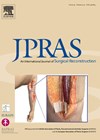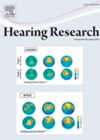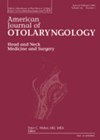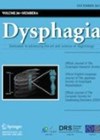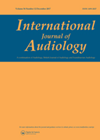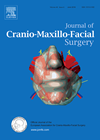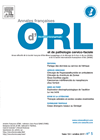
Journal Reviews
The push towards scarless parotid surgery
When dealing with benign parotid pathology, high expectations are placed on the operating surgeon to preserve key neurovascular structures, especially the animating facial nerve, through meticulous dissection. With time, there has been a greater emphasis on improving cosmesis in parotid...
Be mindful of exposure
This is a topic which has been highlighted before in the Hearing Research series, as the evidence base regarding the specific impact of acoustic trauma on the auditory system has been expanding regularly in the last few years. This particular...
Gastrostomy tube dependence following TORS
Transoral robotic surgery (TORS) for oropharyngeal squamous cell carcinoma (OPSCC) is now a well-established treatment modality for early (T1-T2) disease. Accumulating evidence suggests that one of its main benefits relative to conventional chemoradiotherapy is superior long-term functional outcome, especially with...
Predicting the nature of swallowing deficits caused by surgical resection of the tongue?
Patients treated surgically for cancer of the tongue are expected to have difficulty in eating, drinking and swallowing. The authors of this paper report on a cohort of 106 patients in their practice who had surgical resection as primary treatment....
Loudness in non-organic hearing loss
Non-organic hearing loss has been of interest to researchers for a long time. In this study the authors compared a loudness rating measured in relation to the sound level for 1000 Hz in normal hearing patients and patients diagnosed with...
Total lower lip reconstruction: a review
Total or near total defects of the lower lip may result from trauma, cancer ablation or congenital causes. Defects usually involve the full thickness and include skin, muscle and mucosa. There are a number of techniques for the one stage...
Oropharyngeal malignancies
The authors retrospectively reviewed 44 patients who underwent a combined transoral and transcervical treatment without mandibulectomy for oropharyngeal malignancy. The combined approach was performed first by a neck dissection followed by transoral excision of the lesion and reconstruction by a...
Laryngopharyngeal reflux (LPR) in posterior laryngitis
The authors of this study investigated the prevalence of acid reflux in the proximal oesophagus and functional gastrointestinal symptoms in patients with posterior laryngitis. They analysed plasma motilin as well as health-related quality of life (HRQOL) questionnaires before and after...

